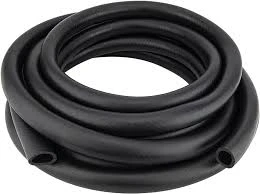flexible automotive ac lines
Nov . 12, 2024 07:24 Back to list
flexible automotive ac lines
The Rise of Flexible Automotive AC Lines A Revolution in Cooling Technology
In the ever-evolving automotive industry, staying ahead of the curve involves embracing innovation and adaptability. One of the remarkable advancements in this field is the development of flexible automotive AC lines. These components are central to modern vehicle cooling systems, enhancing both efficiency and performance while offering significant benefits over traditional rigid lines.
Understanding Flexible AC Lines
Flexible automotive AC lines, as the name suggests, are hoses designed to transport refrigerants throughout a vehicle's air conditioning system. Unlike rigid metal pipes that are often heavy, cumbersome, and difficult to route, flexible lines are made from lightweight materials such as rubber, thermoplastic, or a combination of both. This design allows them to bend and twist seamlessly around engine components and structures within the vehicle.
Key Advantages of Flexible AC Lines
1. Ease of Installation One of the most prominent advantages of flexible AC lines is their ease of installation. The flexibility of these hoses allows automotive engineers to navigate tight spaces and complex layouts without compromising the integrity of the cooling system. This not only reduces installation time but also lowers labor costs, making it a win-win situation for manufacturers and consumers alike.
2. Weight Reduction In an age where fuel efficiency and emissions are of paramount importance, lightweight components are crucial. Flexible AC lines are significantly lighter than traditional metal counterparts, contributing to an overall reduction in vehicle weight. This weight savings translates directly into improved fuel efficiency, which is a critical factor in today’s automotive market.
3. Durability and Resistance Modern flexible AC lines are built to withstand the harsh conditions of engine environments. They are typically resistant to abrasion, heat, and chemical exposure, making them long-lasting and reliable. This durability reduces the likelihood of leaks and failures, which can lead to costly repairs and reduced vehicle performance.
flexible automotive ac lines

4. Vibration Absorption Vehicles are subject to various mechanical vibrations during operation. Flexible AC lines are designed to absorb these vibrations, minimizing stress on the system. This characteristic not only extends the service life of the components but also enhances the overall reliability of the air conditioning system.
5. Improved Cooling Performance Flexible AC lines facilitate efficient refrigerant flow throughout the air conditioning system. Their design allows for smoother transitions, reducing friction losses that can occur in rigid systems. Consequently, this results in better cooling performance, ensuring that the vehicle's interior remains comfortable even in extreme temperatures.
Applications and Future Trends
The shift towards flexible AC lines is not limited to passenger vehicles. These lines are being increasingly utilized in commercial trucks, buses, and electric vehicles as well. As manufacturers continue to innovate, the future of flexible automotive AC lines looks promising. Advances in materials science may lead to even lighter, more flexible, and greater temperature-resistant lines, thus pushing the boundaries of what is currently possible.
Moreover, as the automotive industry transitions towards hybrid and electric vehicles, the demand for optimized cooling systems is set to rise. Flexible AC lines are well-positioned to meet these emerging needs, given their inherent advantages in weight and design adaptability.
Conclusion
The evolution of flexible automotive AC lines is a testament to the automotive industry's commitment to innovation and modernization. By offering enhanced performance, reduced weight, and improved installation processes, these components play an essential role in maintaining efficient climate control in modern vehicles. As technology continues to advance, these flexible lines will undoubtedly remain at the forefront of automotive engineering, paving the way for a more efficient, durable, and comfortable driving experience. The future of automotive cooling looks bright, thanks to the revolutionary impact of flexible AC lines.
